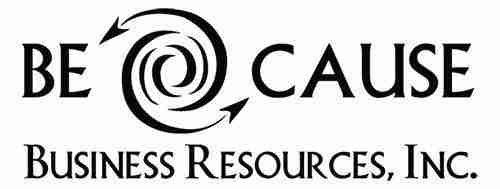When working with a business owner who is transferring his venture to a younger person, there can be a great deal of complexity and detail. This morning, I’m going to remind you that the best way people achieve objectives is by assisting others to reach their goals.
Then we’ll look at four communications issues facing older business owners wishing to retire, and we’ll close with ideas about how retiring entrepreneurs can make it possible for younger business people to realize their dream of business ownership.
While working on such a transfer recently, I had occasion to read some Adam Smith. As a result, I had insights about the importance of clear communication with diverse persons.
Adam Smith, the Scottish philosopher who lived from 1723 to 1790, said “…man has almost constant occasion for the help of his brethren, and it is in vain for him to expect it from their benevolence only. He will be more likely to prevail if he can interest their self-love in his favor, and show them that it is for their own advantage to do for him what he requires of them.”(1) We can achieve our own objectives best by seeking to advance the objectives of those whose help we need.
Smith goes on to add, “It is not from the benevolence of the butcher, the brewer or the baker that we expect our dinner, but from their regard for their own interest. We address ourselves not to their humanity, but to their self-love, and never talk to them of our own necessities, but of their advantages.”
The ability to understand, appreciate and communicate with significantly different persons gives us the ability to secure widely diverse assistance with our projects.
Many small businesses are owned by baby boomers. The market these businesses address is shifting to younger persons, aged 30 years or younger, who have grown up with the Internet and cell phones. “Millennials” are the generation born since 1980. They’re finishing college and graduate school, settling into their careers, forming homes and spending lots of money. Millennials don’t watch TV, read newspapers or use phone books.
Traditional interruptive, outbound marketing is becoming less effective. Attractive, inbound marketing is the way young people decide what to watch, read, do and buy. They use their mobile devices to decide which restaurant, theater or store to visit.
Baby Boomer business owners are facing four distinct communications issues. First, these entrepreneurs are learning to appreciate the values and interests of Millennials and as a consequence, are changing their interruptive marketing to be more “attractive.” Many businesses are practicing inbound marketing to avoid being left behind technologically. The Millennials are assuming a larger share of the buying public.
Second, Baby Boomer entrepreneurs are learning to inspire and lead the Millennials they are hiring to be employees. They are learning how to understand and communicate with the Millennials working for their vendors and in some cases their competitors.
Third, the products and services customers demand are changing as our overall culture changes with sweeping technological and economic shifts since the growth of the Internet, mobile phones and digital everything. How are you experiencing the change to digital products and communication services?
The fourth mega change is Baby Boomers will be transferring their business ownership increasingly to Millennials. The Millennial generation has a significantly larger population than Generation X, the generation after the Baby Boomers and before the Millennials.
Not only are there fewer Generation Xers, they have earned less, saved less and taken on more debt than the Baby Boomers at comparable ages. Fewer resources and less traditional bank credit combine to make Gen Xers less prepared to take over Baby Boomers’ businesses than was the case when Baby Boomers took over businesses from the previous generation. Now the Millenials have the same lack of resources or a greater lack than the Gen Xers. There are the added communications issues between Baby Boomers and Millenials, but Millenials are young, eager and if the value differences can be handled they’re quick learners and better understand the new technology.
Many, many Baby Boomers have continued their careers and businesses longer than they expected. Stock market volatility, changes in pensions and retirement plans, loss of value in homes have all contributed to many people continuing to work long past age 65.
As Baby Boomers age, a variety of factors will combine to force them to change: Among those factors are market changes, competition, illness or death of themselves or family members. Many small businesses will just liquidate. Others will be sold for a fraction of their expected value.
Smart business owners wishing to retire, will plan early and identify a key employee with interest and enthusiasm. Obtaining assistance from a consultant can facilitate in the transferring of the skills to the younger person. Only about half of businesses transferred are done so successfully. There are ways a younger person with virtually no assets can take over a business they could under normal circumstances never afford to purchase traditionally. Determination, patience and careful communications are of great importance for the retiring owner to receive ongoing payments while the younger entrepreneur grows the business and pays off the former owner. Each can get their own needs met while meeting the needs of the other.
Call John Anderson to discuss optimizing, key person succession and owner exit – 800.249.1622.




